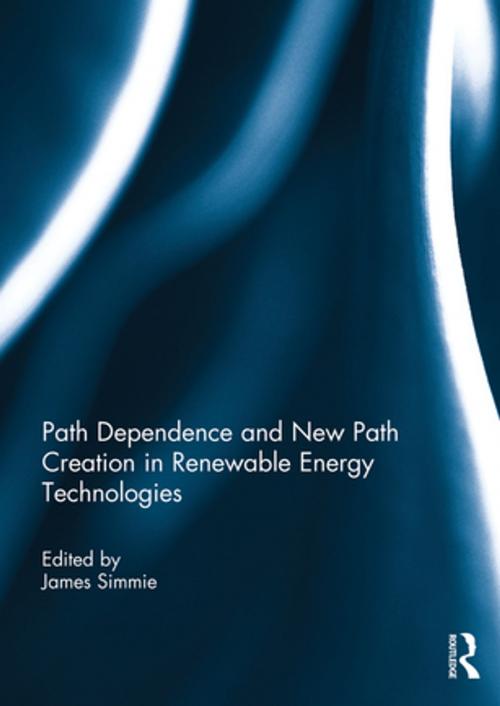Path Dependence and New Path Creation in Renewable Energy Technologies
Business & Finance, Economics| Author: | ISBN: | 9781317688860 | |
| Publisher: | Taylor and Francis | Publication: | January 8, 2016 |
| Imprint: | Routledge | Language: | English |
| Author: | |
| ISBN: | 9781317688860 |
| Publisher: | Taylor and Francis |
| Publication: | January 8, 2016 |
| Imprint: | Routledge |
| Language: | English |
Why are old technologies persisted with after better alternatives have been invented? This book examines this question, a central concern of evolutionary economics, specifically focusing on renewable energy technologies. The concept of path dependence is used to analyse why and how technological development can become locked-in to inefficient ways of doing things. This book shows how lock-in can be avoided by the creation of new technological pathways.
The chapters focus on the comparatively recent introduction of new wind turbine technologies for the generation of carbon free electricity. This case study provides valuable lessons in understanding the issues confronting inventors attempting to commercialise their new ideas in the form of innovations in the face of historically established conventional technologies. It is also set within the critical debate on climate change and the need to de-carbonise energy supplies in order to stop further man-made deterioration in the global environment.
This book was originally published as a special issue of European Planning Studies.
Why are old technologies persisted with after better alternatives have been invented? This book examines this question, a central concern of evolutionary economics, specifically focusing on renewable energy technologies. The concept of path dependence is used to analyse why and how technological development can become locked-in to inefficient ways of doing things. This book shows how lock-in can be avoided by the creation of new technological pathways.
The chapters focus on the comparatively recent introduction of new wind turbine technologies for the generation of carbon free electricity. This case study provides valuable lessons in understanding the issues confronting inventors attempting to commercialise their new ideas in the form of innovations in the face of historically established conventional technologies. It is also set within the critical debate on climate change and the need to de-carbonise energy supplies in order to stop further man-made deterioration in the global environment.
This book was originally published as a special issue of European Planning Studies.















